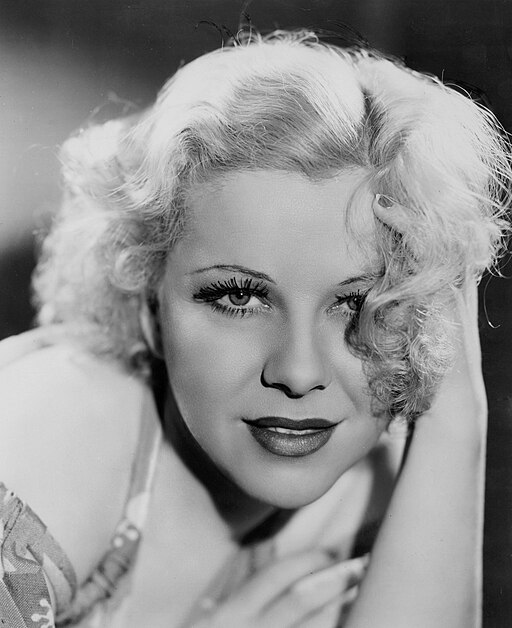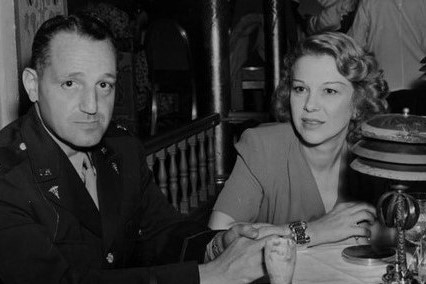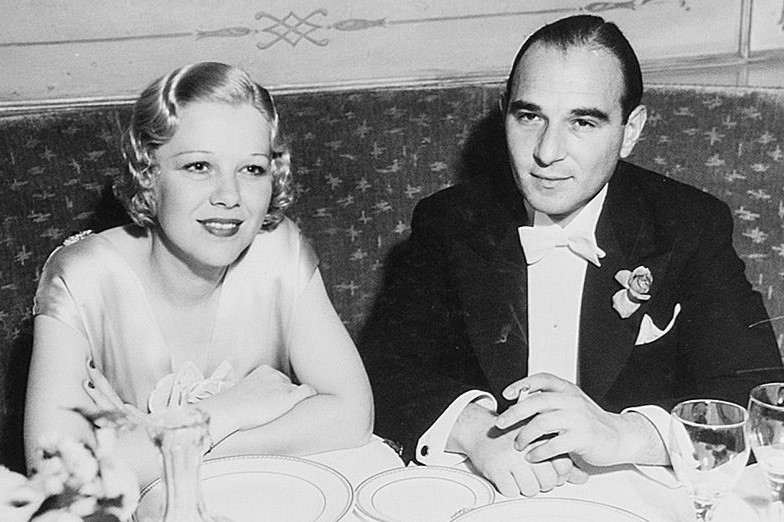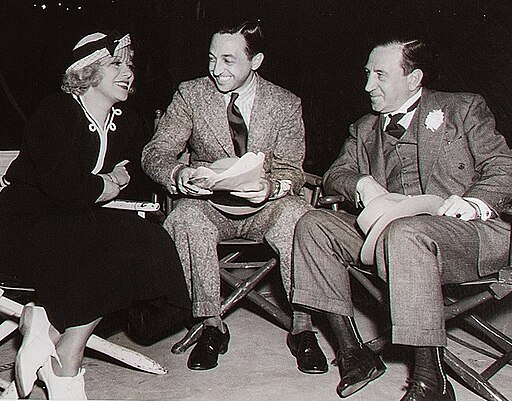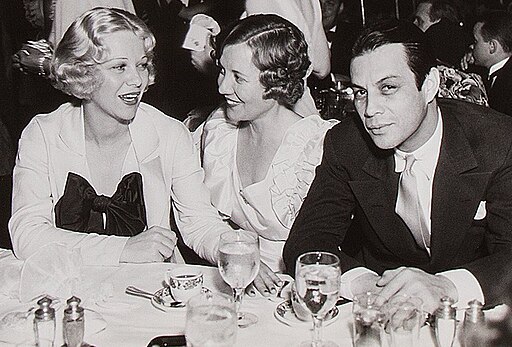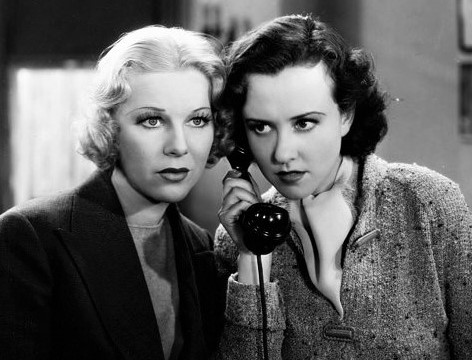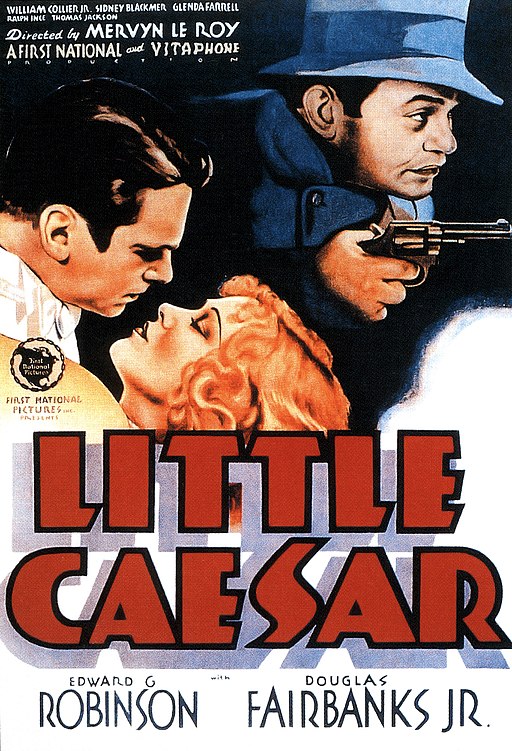Glenda Farrell
back| Full Name | Glenda Farrell |
| Stage Name | Glenda Farrell |
| Born | June 30, 1904 |
| Birthplace | Enid, Oklahoma, U.S. |
| Died | May 1, 1971 |
| Buried | West Point Cemetery, West Point, New York, U.S. |
| Married to | Thomas Richards (1921 - 1929) - Henry Ross (1941 - 1971) |
| Children | Tommy Richards Farrell |
| Notable films | Little Caesar (1931) - Gold Diggers (1935) - Lady for a Day (1933) |
Glenda Farrell
The Queen of Quick Talk
Glenda Farrell's career spanned from the early 1920s through the late 1960s, and she made a significant impact on both film and television.
Known for her fast-talking style, she was adept at both drama and comedy, often playing independent, spirited women who were ahead of their time.
Related
Glenda Farrell (1904 – 1971)
Biography and Career Overview
Glenda Farrell, an American actress celebrated for her vivacious screen presence and adeptness at portraying spirited, independent women, embarked on a cinematic journey that left an indelible mark on Hollywood's golden era. Born on June 30, 1904, in Enid, Oklahoma, Farrell's early years were shaped by a nurturing environment that cultivated her burgeoning passion for performance.
Her path towards success began in the realm of theater, a testament to her profound dedication and innate talent. By the age of seven, Farrell was already gracing the stage, a prodigious start that hinted at her future stardom. This early immersion into acting led her to Broadway, where her performances caught the eye of talent scouts, propelling her into the whirlwind world of cinema.
In 1929, Farrell transitioned to film, swiftly establishing herself as a versatile actress capable of tackling both comedic and dramatic roles. Her breakthrough came with her portrayal of Torchy Blane, a fast-talking reporter in a series of films during the late 1930s. This character became emblematic of Farrell's ability to embody strong, ambitious women, resonating with audiences and critics alike.
Farrell's personal life, much like her career, was marked by its highs and lows. She married twice, first to Thomas Richards, with whom she had her only child, Tommy Farrell, who would follow in his mother's footsteps into the acting world. Her second marriage was to Dr. Henry Ross, a Hollywood physician, reflecting her life's intertwining with the entertainment industry.
Beyond the camera, Farrell harbored a passion for the arts and was a dedicated mother. She was also deeply involved in charity work, especially during World War II, when she contributed to the war effort by entertaining troops and volunteering for various causes.
Farrell's career spanned several decades, transitioning from the silver screen to television in the 1950s and 1960s, showcasing her adaptability and enduring appeal. However, like many of her contemporaries, she faced challenges, including navigating the changing landscape of Hollywood and the advent of television. Despite these obstacles, Farrell remained a beloved figure, known for her quick wit, warmth, and generosity.
On May 1, 1971, Glenda Farrell passed away due to lung cancer, leaving behind a legacy that transcended her roles on screen. Buried in West Point Cemetery, New York, her life and career continue to be celebrated for their significant contributions to the film industry and for paving the way for future generations of actresses.
Glenda Farrell in Lady for a Day:
Notable Movies featuring Glenda Farrell:
1931 - "Little Caesar"
- Synopsis: In this classic crime film, Farrell plays Olga Stassoff, opposite Edward G. Robinson's Rico. The film follows Rico's rise and fall within the criminal underworld, marking a pivotal moment in the gangster genre.
1932 - "I Am a Fugitive from a Chain Gang"
- Synopsis: Farrell supports in a gripping drama about a wrongfully convicted man (played by Paul Muni) who escapes from a brutal Southern chain gang. It's a harsh critique of the American justice system.
1933 - "Lady for a Day"
Synopsis: Directed by Frank Capra, this film features Farrell in a supporting role in a heartwarming tale about a poor street vendor who is transformed into a society lady for a day.
1935 - "Gold Diggers of 1935"
Synopsis: In this musical comedy, Farrell plays Betty Hawes, one of the titular gold diggers. The film is known for its elaborate Busby Berkeley choreographed numbers and the classic song "Lullaby of Broadway."
1936 to 1939 - "Torchy Blane" series
Synopsis: Farrell is best remembered for her role as the quick-witted, fast-talking reporter Torchy Blane in a series of films. These movies were groundbreaking for their portrayal of a female protagonist in a traditionally male role, blending mystery, comedy, and drama.
1941 - "Johnny Eager"
Synopsis: In this crime drama starring Robert Taylor and Lana Turner, Farrell plays a supporting role. The story centers on a charming but ruthless criminal, Johnny Eager, plotting to manipulate a parole officer.
1952 - "Mystery in Mexico"
Synopsis: In one of her later film roles, Farrell appears in this crime thriller about an insurance investigator looking into the disappearance of a colleague in Mexico, showcasing her versatility as an actress.
Analysis of Glenda Farrell’s Style of Acting:
Glenda Farrell's acting style epitomized the vivacious, spirited energy of early Hollywood, making her one of the most memorable and dynamic actresses of her time. Known for her rapid-fire delivery and ability to convey strength and wit with equal aplomb, Farrell carved a niche for herself in an era that was just beginning to explore the complexities of strong female characters on screen.
Rapid-Fire Dialogue Delivery
One of the most distinctive aspects of Farrell's acting was her mastery of fast-paced dialogue. This skill was particularly evident in her portrayal of Torchy Blane, a smart, ambitious reporter who was always a step ahead of her male counterparts. Farrell's ability to deliver lines with precision and speed, without sacrificing clarity or emotional depth, contributed significantly to the character's popularity and was a testament to her exceptional verbal dexterity.
Blend of Comedy and Drama
Farrell seamlessly blended comedic timing with dramatic gravitas, embodying characters that were both relatable and aspirational. Her performances often highlighted her character's intelligence and independence, traits that resonated with audiences and set a precedent for future portrayals of women in film. Even in lighter roles, she conveyed a sense of resilience and complexity, bringing depth to the archetypal characters of the time.
Independence and Strength
Farrell's roles often broke away from the traditional confines of female characters in the early 20th century. She portrayed women who were not only the equals of their male counterparts but often their superiors in wit, courage, and determination. This independence made her characters stand out, providing audiences with a glimpse of a more progressive and egalitarian perspective on gender roles.
Emotional Authenticity
Despite the often rapid pace of her dialogue and the strong, independent nature of her characters, Farrell infused her performances with emotional authenticity. She had a remarkable ability to convey vulnerability, joy, and resilience, often in the span of a single scene. This emotional range allowed her to connect with audiences on a deeper level, making her characters memorable and beloved.
Legacy
Glenda Farrell's acting style was both a product of its time and ahead of it. She demonstrated that female characters could be more than just damsels in distress or secondary figures; they could be complex, strong, and the driving force of a narrative. Her legacy lies not only in the memorable characters she brought to life but also in the path she paved for actresses to come, showcasing the power of combining wit, intelligence, and emotional depth on screen.
In summary, Glenda Farrell's acting style was characterized by her quick-witted dialogue delivery, a seamless blend of comedy and drama, and the portrayal of independent, strong female characters. Her performances remain a vibrant testament to her talent and pioneering spirit, ensuring her place in the pantheon of early Hollywood legends.
Recognition:
Glenda Farrell, despite her significant contributions to the film industry and her popularity with audiences, does not have a well-documented history of receiving major film awards like the Oscars. This lack of recognition can be attributed to the competitive nature of the industry and the limited number of categories and awards available during her most active years in cinema.
Significance of her Part in “Little Caesar”:
Glenda Farrell's performance in "Little Caesar" (1930) marks a pivotal moment in her career for several reasons, underscoring her versatility as an actress and helping to solidify her place within the Hollywood film industry during its early years. "Little Caesar" is widely regarded as one of the seminal films in the gangster genre, telling the story of the rise and fall of Rico Bandello, played by Edward G. Robinson, a small-time criminal who becomes a powerful mob boss.
Breakthrough Role
Although Farrell's role in "Little Caesar" was not as large or central as Edward G. Robinson's character, her involvement in such a significant and successful film early in her career was instrumental in raising her profile within the industry. It showcased her acting talents on a much larger stage and exposed her to a wider audience.
Transition to Talkies
"Little Caesar" came at a time when Hollywood was transitioning from silent films to "talkies," and being part of a successful talkie helped Farrell to navigate this crucial industry shift. Her performance in the film demonstrated her ability to adapt to the new demands of sound films, including dialogue delivery and the nuances of vocal performance, skills that would become trademarks of her acting style.
Typecasting and Versatility
Farrell's performance in "Little Caesar" and her subsequent roles in the early 1930s often cast her in the mold of the tough, savvy woman who could hold her own in a male-dominated world. This would lead to her being typecast in similar roles, including reporters, secretaries, and women of ambition and gumption. While this typecasting could be seen as limiting, Farrell used it to her advantage, carving out a niche for herself in the industry. Her portrayal of such characters was both a reflection of and an influence on the changing perceptions of women during that era.
Career Longevity
Being part of "Little Caesar" contributed to Farrell's career longevity. The film's success helped to ensure that she remained a sought-after actress throughout the 1930s and beyond, leading to a variety of roles that showcased her range as an actress. This early exposure to high-profile projects laid the groundwork for her later success, including her iconic portrayal of Torchy Blane.
Legacy
Farrell's involvement in "Little Caesar" is a testament to her skill as an actress and her ability to make a lasting impression, regardless of the size of her role. The film's historical significance in the gangster genre and its place in cinema history further enhance the importance of Farrell's participation in it, underscoring her contribution to early Hollywood's formative years.
Comprehensive List of Movies with Glenda Farrell:
- 1928 - Lucky Boy
- 1931 - Little Caesar
- 1931 - The Mystery Train
- 1931 - Ladies' Man
- 1932 - Life Begins
- 1932 - I Am a Fugitive from a Chain Gang
- 1932 - Union Depot
- 1932 - The Match King
- 1933 - Mystery of the Wax Museum
- 1933 - The Keyhole
- 1933 - Lady for a Day
- 1933 - Bureau of Missing Persons
- 1934 - Heat Lightning
- 1934 - Hi, Nellie!
- 1934 - Kansas City Princess
- 1935 - Gold Diggers of 1935
- 1935 - Go Into Your Dance
- 1935 - We're in the Money
- 1935 - The Goose and the Gander
- 1936 - Nobody's Fool
- 1936 - Here Comes Carter
- 1937 - Breakfast for Two
- 1937 - Hollywood Hotel
- 1938 - My Bill
- 1938-1939 - Torchy Blane series (9 films)
Including titles like Smart Blonde, Fly-Away Baby, Torchy Blane.. Playing with Dynamite, among others.
- 1940 - I Can't Give You Anything But Love, Baby
- 1941 - Johnny Eager
- 1943 - A Night for Crime
- 1944 - Find the Blackmailer
- 1945 - Escape in the Fog
- 1950 - Kiss Tomorrow Goodbye
- 1952 - Mystery in Mexico

